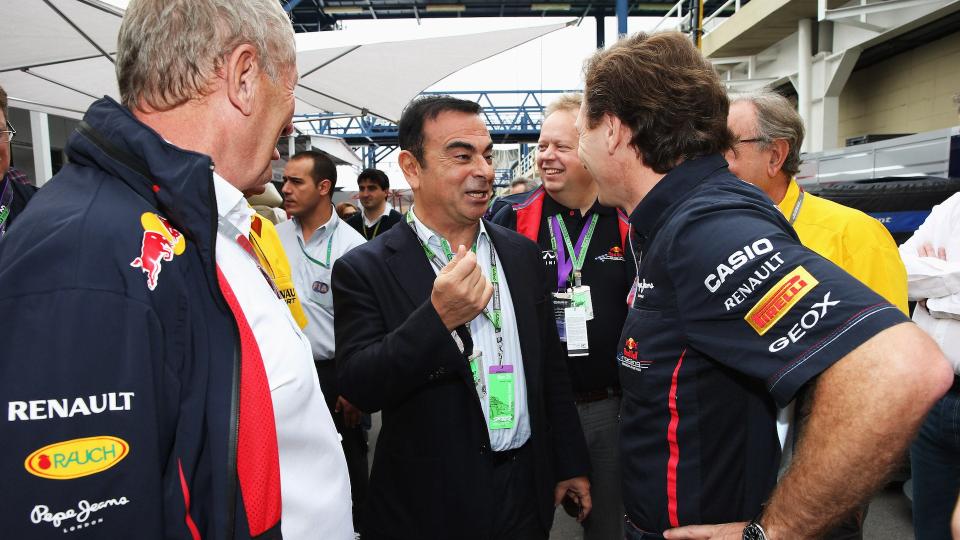'I Have No Interest in F1,' Carlos Ghosn Told Red Bull During Renault Struggles

Red Bull and Renault had an amazing run of success in their early days together, racking up championships like nobody's business. That positive relationship then rapidly fell apart in the middle of last decade when results were suddenly harder to come by. In a podcast appearance by famed Formula 1 designer Adrian Newey, we're given a much better understanding of why things turned sour so quickly.
Speaking on the latest episode of F1's Beyond The Grid podcast, Newey outlined exactly how Red Bull came to fall out with its engine supplier. Despite winning four driver's and four constructor's championships in a row, the dawn of the turbo-hybrid era had proven difficult for the successful partnership. Red Bull laid much of the blame at Renault's door, with team principal Christian Horner publically blasting the engine as "quite undrivable" in the midst of the troubled 2014 season.

“We were in this position where Renault hadn’t produced a competitive engine in the turbo hybrid era,” said Newey in the F1 Podcast. “You know, that happens first year. Okay, it's new rules, we all make mistakes.” Crisis talks between the team and Renault were arranged to try and get some action on the engine issues. “We went to see Carlos Ghosn, the boss of Renault at Champs-Élysées, Christian, Helmut and myself, to try to put pressure on him to up the budget and basically ask if he can free more resources so the engine division can accelerate their program... they needed more people and more money,” Newey added.
“Ghosn’s reply was ‘I have no interest in Formula 1. I am only in it because my marketing people say I should be,’" noted Newey. "That was such a depressing place to be." It was a time when Red Bull had no other viable options, with Mercedes and Ferrari both unlikely to supply a competitive power unit. "We were stuck with Renault for some huge amount of time in the future... and we couldn’t be properly competitive. It was such a dark tunnel.”

 Yahoo Autos
Yahoo Autos 